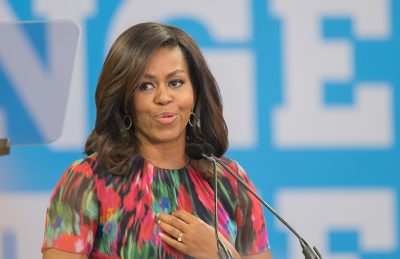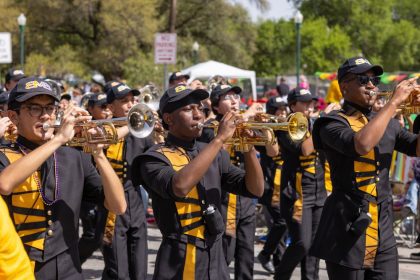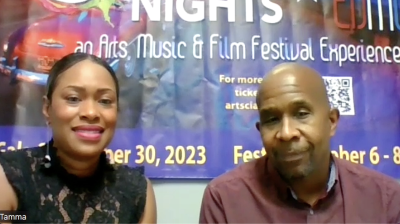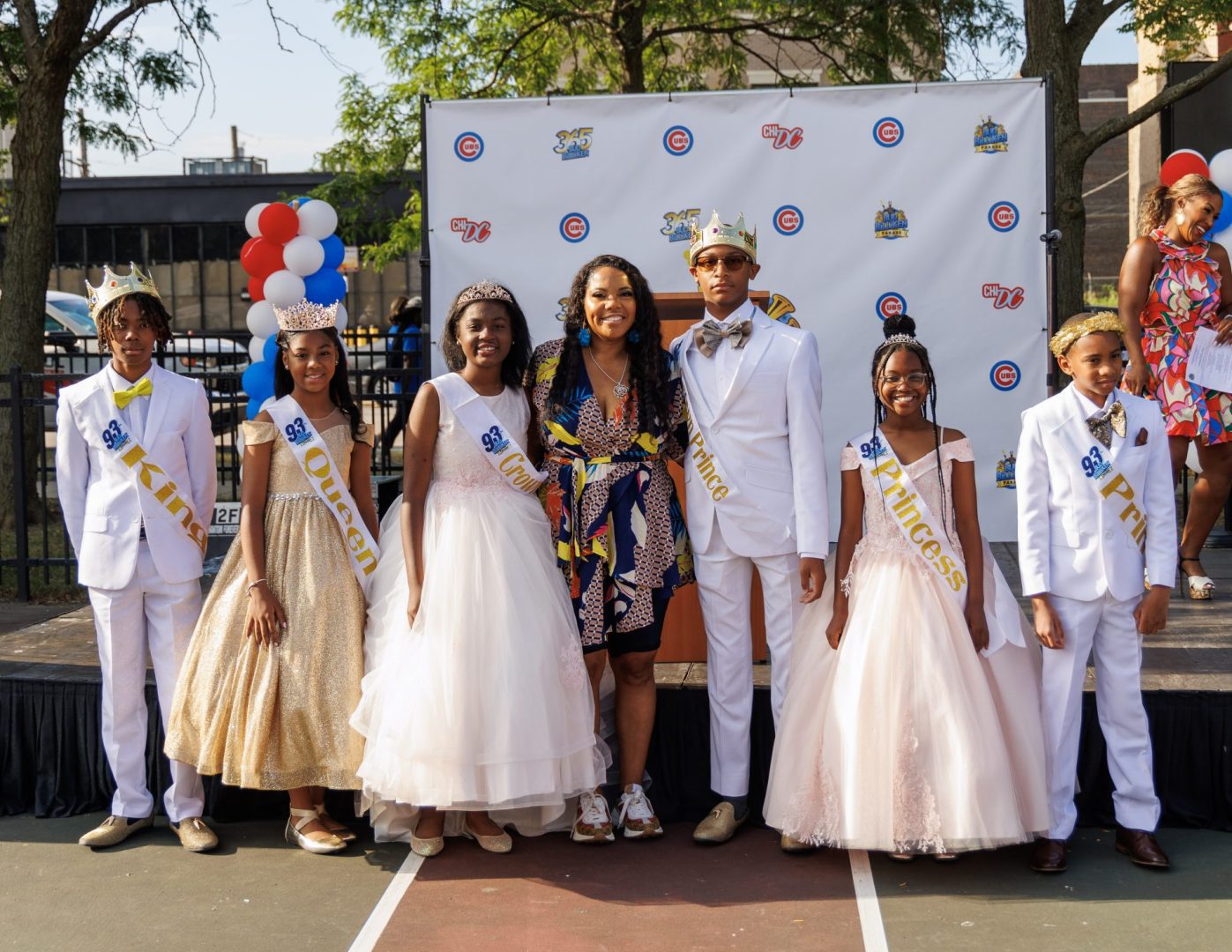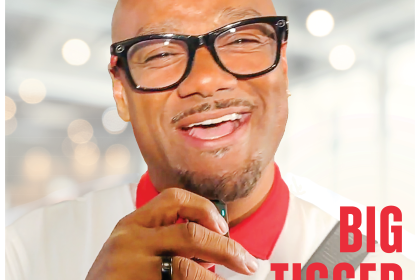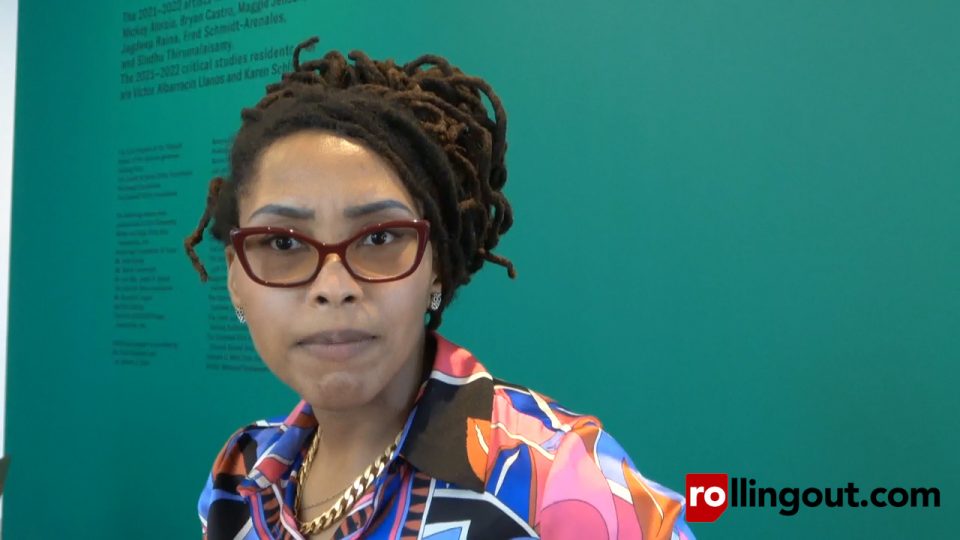
Anita Bateman recently hosted her first in-person event inHouston. The associate curator at the Museum of Fine Arts, Houston, welcomed the Obama portraits to the city with great fanfare, encouraging attendees to wear their Sunday best.
After welcoming the public in with a public address, Bateman spoke with rolling out for a few moments about what the event, art and culture mean to her.
How would you describe the Black culture in Houston?
I’m still learning it. I’ve been here five months so far. I just started and moved here in October. This is my first project, so I knew I wanted to connect with the Black community in Houston.
I’m also from the South. I’m from Memphis. We have things as the diaspora that connect us. So I feel familiar with the city, but I still know there are particularities that need to be learned in terms of Houston communities, but the Third Ward … is a great place and a seat of African American life, as are the Fourth Ward and Freedmen’s Town.
It’s been a learning experience, for sure, but I’m happy people are out and showing love to the museums.
What is the beauty and the importance of the arts?
Oh, that’s a big question.
There are ways people really connect with the arts that go beyond what we wouldn’t necessarily think of as circumscribe if that makes sense?
People connect with different things when they come to museums and galleries or when they were talking to artists. Some people feel art is somewhere they can escape. [They] can release the pent-up trauma, the day-to-day humdrum of going about ordinary businesses. When they come to a museum, they are finding themselves in the presence of portraits like the Obama portraits.
How do you feel about the CROWN Act being passed?
It’s long overdue, of course.
I’ve actually done shows about hair, or I have talked to people about hair as they use it in their artistic practices.
With hair discrimination, before we knew it was a moot point, because what is professionalism? What does it mean to present in a way that would be aligned with what we think are beauty standards, or what we think necessarily makes someone an intelligent person?
That is all very subjective.
Now that this is in place for people to actually say there is discrimination against people with natural hair, and we are going to have a law that states people cannot do that. It really just shows that what Black people have been saying was real before.
I’m happy that it’s passed, but it’s also like very bittersweet because it had to be in writing to not do that to people or to not be discriminatory against people who may have, you know, curly textured hair or kinky hair.



